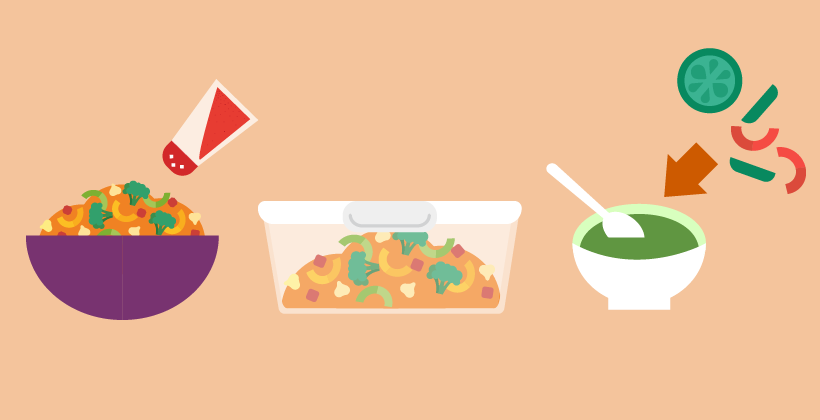Detoxing: does it really work?
Last Updated : 10 August 2018
“Detoxing” has been popular for quite some time. The term usually refers to short‐term interventions that claim to eliminate toxins from the body, improve health, cause rapid weight loss, and make skin glow. These diets include starvation fasts, juice fasts, or single-food diets (e.g. cabbage soup diet). Some diets focus on ‘clean’ foods, such as fruit and vegetables (usually organic) and other unprocessed foods with few ingredients, while eliminating specific ingredients, such as sugar or caffeine. Sometimes they also promote the use of diuretics, laxatives, or other products, such a detoxing teas or supplements, although there is often uncertainty around which specific “toxins” these diets claim to remove. 1
OK, so what are the facts?
A recent critical review showed that there is no evidence for the effectiveness of detoxing on weight loss or toxin elimination.2 In humans, toxins are removed from the body by the liver and kidneys, which breakdown and excrete these toxins as part of their normal bodily function, regardless of diet. So far, the European Union has refused authorisation of detoxification health claims for ten foods or ingredients due to lack of evidence.3
Moreover, although it is great that some of these diets promote eating lots of fruit and vegetables, individually, no fruit or vegetable can provide us with all the nutrients we need to maintain optimal health. In other words, eating one type of fruit or vegetable, for instance a cabbage-only diet, cannot provide us with all the nutrients that we need.
Do we need to detox from sugar?
Detoxing from sugar, in particular removing all sources of added sugars from the diet, has become a fairly popular form of dieting. This is mainly because sugar has acquired a not-so-sweet reputation in the media, where it is frequently described as toxic, poisonous and addictive. While sugar is not toxic in the average amounts consumed in Europe, the fact remains that many Europeans do not stick to intake recommendations.4 Over-consumption of sugar has been linked with obesity and dental caries (tooth decay), so while there is no need to go on a sugar detox, it is best enjoyed in moderation.5
Concerning addiction, research has found little evidence to support sugar addiction in humans.6,7 ‘Addiction’ refers to physiological and psychological processes that cause dependence and withdrawal symptoms upon stopping intake, such that the person actively seeks out the material to prevent withdrawal. It is important to distinguish between individuals having a strong compulsion towards (over)eating versus the idea that specific foods or nutrients are themselves addictive. Also, our environment plays an important role for the majority of people who over-eat. For example, the availability of highly palatable (high in fat, sugar, and salt) foods and beverages, together with a culture of consumption, encourages over-eating.8
But what about sugars in fruit?
Even fruit has been criticised because of sugar content. While fruit does contain sugar (fructose), it also contains many other important nutrients and fibre. The European Food Safety Authority (EFSA) recommends including fibre-rich foods as part of a healthy balanced diet to improve weight maintenance.9 Moreover, the high fibre content of fruit helps our bodies to digest the natural sugars present in fruit more slowly than for foods high in free sugars, helping to avoid a spike in our blood sugar levels.8
Current World Health Organisation (WHO) dietary guidelines recommend that we should reduce our intake of free sugars (those added to foods and beverages, and those naturally present in honey, syrups and fruit juices) to less than 10% of our total energy intake. Practically, that’s around 50 g (12 teaspoons) a day for an adult (based on 2,000 kcal per day), or 45 g (10 teaspoons) for children aged 9-13 year, or about 35 g (8 teaspoons) a day for a child (aged 4-8 years, based on 1,400 kcal per day). These guidelines don’t apply to the natural sugars in fresh fruit or milk.10,11
The bottom line: leave the detoxing to your liver and kidneys!
It is important to keep in mind that over-consumption of calories from any source, not just sugars, can lead to weight gain. Whilst detoxifying diets may be an effective method for short-term weight loss, this is simply due to a caloric restriction. Any weight lost is likely to come straight back upon returning to previous dietary habits. Significant caloric restriction and elimination of foods in these diets can also be dangerous as they do not provide a sufficient energy intake or the nutrients required for general health and well-being, potentially impairing physical and mental health. So, don’t fall for this fad, aim for a healthy, balanced diet and leave the detoxing to your kidneys and liver!




